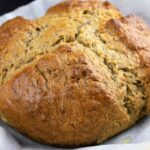Vitamin B12, also known as cobalamin, is an essential nutrient that plays a vital role in numerous bodily functions. Understanding what foods are high in vitamin B12 is crucial for maintaining overall health, especially for individuals with dietary restrictions or specific health conditions. This guide provides a detailed overview of B12-rich foods, their benefits, and how to ensure adequate intake.
Why is Vitamin B12 Important?
Vitamin B12 is crucial for:
- Red Blood Cell Formation: It helps in the production of healthy red blood cells, preventing anemia.
- Nervous System Function: B12 supports the healthy functioning of the nervous system.
- Energy Release: It aids in releasing energy from food.
- Folate Utilization: Vitamin B12 assists the body in using folate effectively.
A deficiency in vitamin B12 can lead to serious health issues, including fatigue, weakness, neurological problems, and anemia.
What Foods Are High in Vitamin B12?
The primary sources of vitamin B12 are animal products. However, some fortified foods can also provide this essential nutrient. Here’s a detailed list:
Animal Products
- Meat: Beef, lamb, and pork are excellent sources of vitamin B12. Organ meats like liver are particularly rich in B12.
- Fish: Certain types of fish, such as salmon, tuna, trout, and sardines, contain significant amounts of vitamin B12.
- Poultry: Chicken and turkey provide B12, although in smaller amounts compared to red meat and fish.
- Dairy Products: Milk, cheese, and yogurt are good sources of B12, making them important for vegetarians who consume dairy.
- Eggs: Eggs, especially the yolks, contain vitamin B12.
Fortified Foods
- Fortified Breakfast Cereals: Some breakfast cereals are fortified with vitamin B12. Check the nutrition labels to identify cereals that provide a good source of this vitamin.
- Fortified Plant-Based Milks: Almond milk, soy milk, and other plant-based milks are often fortified with B12, making them suitable for vegans.
- Nutritional Yeast: This deactivated yeast is often fortified with B12 and can be a valuable source for vegans.
Nutritional yeast flakes are a vegan-friendly source of vitamin B12 when fortified, adding a cheesy flavor to dishes.
Specific Food Examples and B12 Content (per serving)
| Food | Serving Size | Approximate B12 Content (mcg) |
|---|---|---|
| Beef Liver | 3 ounces | 70.7 |
| Cooked Clams | 3 ounces | 98.9 |
| Salmon | 3 ounces | 2.6 |
| Tuna | 3 ounces | 9.3 |
| Ground Beef | 3 ounces | 2.4 |
| Eggs | 2 large | 0.9 |
| Milk | 1 cup | 1.2 |
| Fortified Breakfast Cereal | ¾ cup | Varies, check label |
Note: B12 content can vary based on preparation methods and specific product brands.
How Much Vitamin B12 Do You Need?
The recommended daily intake of vitamin B12 for adults (aged 19-64) is about 1.5 micrograms (mcg). Most people who eat meat, fish, or dairy can obtain sufficient B12 from their diet. However, certain groups may need to pay closer attention to their B12 intake.
Who Is at Risk of Vitamin B12 Deficiency?
- Vegans and Vegetarians: Since B12 is primarily found in animal products, vegans and some vegetarians may not get enough from their diet alone.
- Older Adults: As you age, your ability to absorb B12 from food decreases.
- People with Digestive Disorders: Conditions like Crohn’s disease, celiac disease, and atrophic gastritis can impair B12 absorption.
- People Who Have Had Weight Loss Surgery: Certain weight loss surgeries can reduce the amount of B12 the body absorbs.
- Individuals Taking Certain Medications: Some medications, like proton pump inhibitors (PPIs) and metformin, can interfere with B12 absorption.
Fatty fish such as salmon are excellent sources of vitamin B12, contributing to neurological health and red blood cell formation.
How to Ensure Adequate Vitamin B12 Intake
- Dietary Choices: Include B12-rich foods in your diet regularly. This is particularly important if you consume animal products.
- Fortified Foods: If you are vegan or vegetarian, incorporate fortified foods like plant-based milks, breakfast cereals, and nutritional yeast into your diet.
- Supplements: Consider taking a vitamin B12 supplement if you are at risk of deficiency or have difficulty absorbing B12 from food. Consult with a healthcare provider before starting any new supplement regimen.
- B12 Injections: In some cases, a doctor may recommend B12 injections, especially for individuals with severe deficiencies or absorption issues.
Symptoms of Vitamin B12 Deficiency
Recognizing the symptoms of B12 deficiency is crucial for early intervention. Common symptoms include:
- Fatigue and weakness
- Pale skin
- Numbness or tingling in hands and feet
- Difficulty walking
- Memory problems
- Mouth sores
- Swollen tongue
- Depression
If you experience any of these symptoms, consult a healthcare professional for evaluation and treatment.
Potential Risks of Excessive Vitamin B12 Intake
While vitamin B12 is generally considered safe, even at high doses, it’s still important to be mindful of your intake. There’s limited evidence to suggest that high doses of vitamin B12 supplements cause harm. However, it’s always best to consult with a healthcare provider before taking high doses of any supplement.
Conclusion
Knowing what foods are high in vitamin B12 is essential for maintaining optimal health. By incorporating a variety of B12-rich foods into your diet and considering supplementation if necessary, you can ensure that you meet your daily requirements and avoid the risks associated with deficiency. Whether you are an omnivore, vegetarian, or vegan, there are many ways to get enough vitamin B12 and support your overall well-being. Remember to consult with a healthcare professional for personalized advice and to address any concerns about your vitamin B12 levels.

